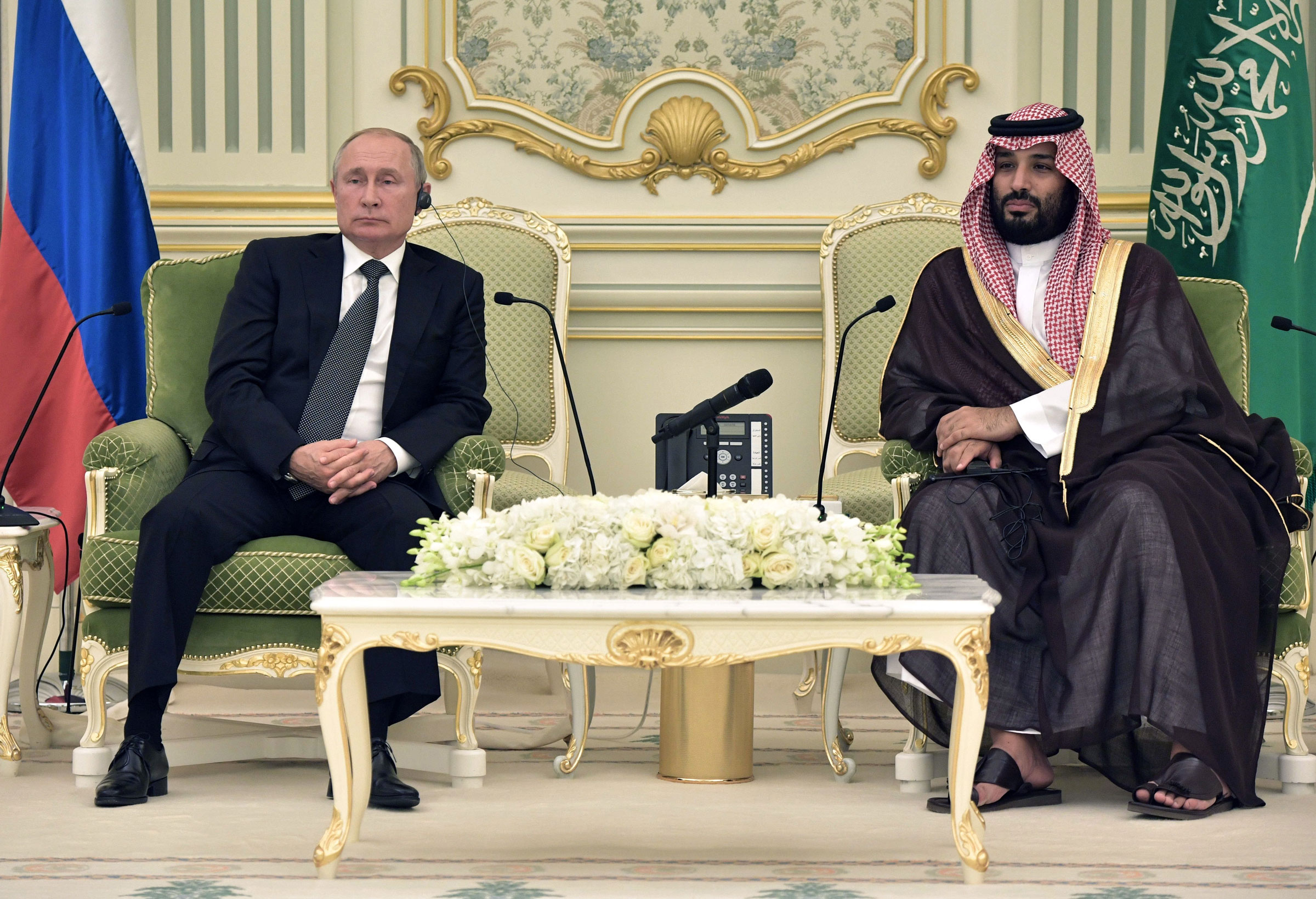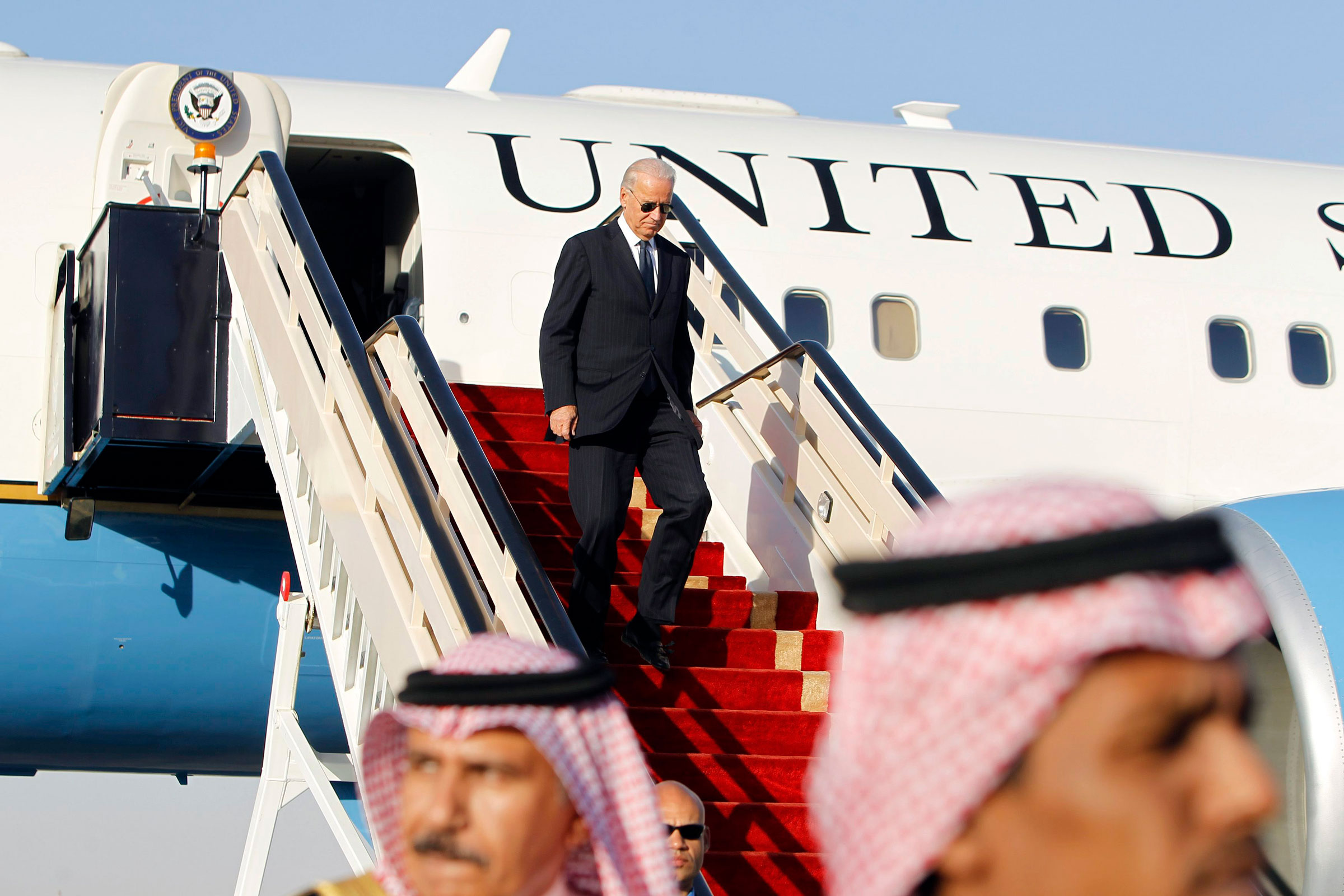On the campaign trail, President Biden talked tough on Saudi Arabia. He said the kingdom should be treated as a “pariah” after the murder of Saudi dissident and Washington Post columnist Jamal Khashoggi. One of his first acts as President was to declassify the Office of the Director of National Intelligence’s assessment that Crown Prince Mohammed bin Salman approved Khashoggi’s killing.
That was then. As Biden travels through the Middle East for the first time as President, his campaign’s emphasis on human rights has given way to realpolitik. The White House has concluded that the U.S. needs its old ally Saudi Arabia on its side as America leads the global effort to punish Moscow economically for its brutal war in Ukraine, and prepares for a new era of confrontation with Russia. “The Russian invasion of Ukraine gave this trip more of a great-power-competition focus,” says Aaron David Miller, a former senior advisor for Middle East policy at the State Department.
Biden has had to swallow his pride and make nice in Saudi Arabia. As the 46th president visited Jeddah on Friday after his swing through Israel and the West Bank, he’s attending a meeting of Gulf states and agreed to a face-to-face sit down with bin Salman, the de facto ruler of Saudi Arabia. Stepping out of his armored limousine in the vestibule outside the palace in Jeddah, Biden offered his fist to bin Salman. The crown prince put out his own fist and bumped Biden’s. That moment, and the closed-door meeting that followed, highlighted Biden’s willingness to put U.S. strategic interests ahead of the Kingdom’s noxious human rights record.
Even as sanctions begin to bite the Russian economy, the U.S. is seeing countries worldwide hedge their bets. Israel, for example, continues to maintain its open relations with Russia in hopes of managing security threats from Syria, where Russia has a military base, and tending to longstanding ties between Israelis and Russian Jews. Saudi Arabia, for its part, sees its relationship with oil-rich Russia as way to help influence global energy markets, on which the Saudi economy largely depends.
Similar cross-cutting interests are playing out across the globe. “Of the 10 most populated countries in the world, only one has bought on to a comprehensive package against Russia—and that’s us,” Miller says. That’s why Biden’s trip is part of a broader effort by the U.S. to shore up what wonks inside the West Wing call “middle powers,” those countries who could be lured to Russia’s side as the conflict in Ukraine reheats the competition between Moscow and Washington. “It is precisely because the world is becoming more geopolitically competitive” that the U.S needs to “remain intensively engaged in the Middle East,” National Security Advisor Jake Sullivan told reporters before Biden left on his trip. One of Biden’s objectives for his time in the region, Sullivan said, is to ensure that “no foreign power can dominate or gain strategic advantage over the United States.”

The U.S. has the edge in much of the Mideast. The Saudi-Russia connection is nowhere near as deep as Riyadh’s with the United States, which dates to the decades after the House of Saud seized power on the peninsula in the early 20th century. Moscow’s relationship with Riyadh was tense following the Soviet Union’s 1979 invasion of Afghanistan and the Saudi and U.S. effort to back mujahideen fighters resisting the Russian occupation. Diplomatic relations between Russia and Saudi Arabia weren’t re-established until 1992.
But the U.S. can’t take Saudi Arabia for granted. Russia and Saudi Arabia took a step closer to each other in 2016, when Saudi leaders convinced Russia to join an expanded version of the Organization of the Petroleum Exporting Countries known as OPEC Plus. That partnership has been one of convenience and was partially motivated by Saudi frustration at seeing the U.S. develop fracking and shale extraction technologies that boosted U.S. oil production.
The Saudi-led group of oil producers agreed in June to increase oil sales, but production so far has lagged behind the targets. Any increase in oil production from the region will take months to have an impact on high U.S. gas prices, a major political liability for Biden going into the midterm elections.
Over time, the Saudis apparently have come to see the U.S. as a “less reliable partner,” and that’s created an opening for Russia, says Eugene Rumer, the director of the Russia and Eurasia Program at the Carnegie Endowment for International Peace and a former national intelligence officer for Russia and Eurasia at the U.S. National Intelligence Council. Russia and Saudi Arabia “share a common aversion to the U.S. bringing up human rights as a major policy issue,” Rumer says. Russian President Vladimir Putin “is only happy to jump in where the United States seems to be leaving some vacuum,” Rumer says. Putin doesn’t have much to offer the Saudis in the long term. “But for Putin, there’s a sense of playing on the big stage again,” Rumer says.
For more than two decades, the U.S. has worked to integrate Russia into the global economy on the idea that Russia’s interests would start to align more with American and European economic interests. But Putin’s shown with his repeated invasions of Ukraine that he’s unwilling to moderate his ambitions. And Russia’s ties to the world economy have now become one of its strategic assets, as the U.S. and Europe experience how difficult it is to isolate Russia’s $1.7 trillion economy without damaging the European and American economies.
Saudi Arabia and the U.S. also both view Iran as a threat, a concern that may also argue against placing human rights at the top of the list of Washington’s priorities with Riyadh. “When you are leading the most powerful and significant country in the world, sometimes you have to meet with people and go to countries where they are a seriously problematic partner,” says Bradley Bowman, a former Army officer and an expert on U.S. military strategy with the Foundation for Defense of Democracies. Bowman believes it would be “negligent” for Biden not to go to Saudi Arabia.

The U.S. also has an eye on China’s increasingly global ambitions. “We know that Russia never left the Middle East and we know that China’s active there, both diplomatically and economically,” Bowman says. China’s first overseas military base was established in Djibouti near a U.S. military base in that country.
If the U.S. is going to compete in this “great power competition” in the Middle East, Bowman says, it has to tend to its relationship with countries there. “That doesn’t mean we need to have hundreds and hundreds of thousands of troops there necessarily,” Bowman says. But if the U.S. doesn’t keep up some of its military relationships there, “Chinese and Russians will be among those most happily waving goodbye as we depart the Middle East,” Bowman says.
“President Biden would love to see OPEC in general and Saudi Arabia in particular producing more oil to try to get gas prices down, but if you’re constantly criticizing Riyadh and you’re constantly talking about how you want to leave the Middle East and pivot elsewhere,” Bowman says, “then when you come calling hat in hand with requests about pumping more oil or doing this or doing that, anyone who tries to maintain personal relationships understands that may be not be well received.”
After Biden departs, Putin will be visiting the region next week. The Russian President is scheduled to meet in Tehran with the leaders of Iran and Turkey. The Biden Administration is concerned that Iran is selling drones to Russia for use on the battlefield in Ukraine.
More Must-Reads from TIME
- Caitlin Clark Is TIME's 2024 Athlete of the Year
- Where Trump 2.0 Will Differ From 1.0
- Is Intermittent Fasting Good or Bad for You?
- The 100 Must-Read Books of 2024
- Column: If Optimism Feels Ridiculous Now, Try Hope
- The Future of Climate Action Is Trade Policy
- FX’s Say Nothing Is the Must-Watch Political Thriller of 2024
- Merle Bombardieri Is Helping People Make the Baby Decision
Contact us at letters@time.com